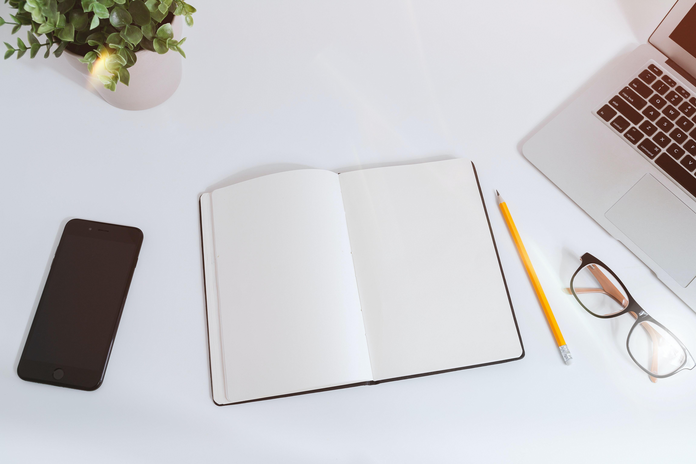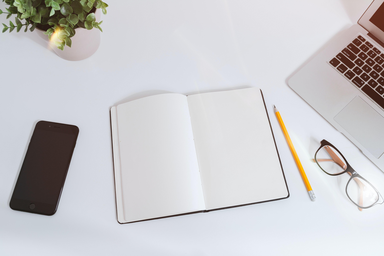Journaling is a Gen Z buzzword that tends to be seen as something that will make you ‘that girl’, something that will allow you to become slightly closer to your desire to become the British Emma Chamberlain. I think it’s easy for journaling to be the sort of thing you pick up and drop as wellness trends pass, but journaling has been viewed as a mindfulness technique for a long time by different professionals.
Types of Journaling
- Bullet journaling– a creative journal that is used to track habits. It is common to use a monthly or weekly ‘spread’ that is filled with drawings or doodles and is used particularly by people looking to improve their lifestyles, such as diet, exercise or study.
- Gratitude journaling- writing things you are grateful for in a day, to train the brain to focus on the positive aspects of your life and gain a more optimistic outlook despite the mundane nature of daily life.
- Mood journaling– a more ‘diary’ form of journaling in which you write about your feelings daily, and what happened during the day to have a better understanding of them and also to identify patterns that may occur in your mood associated with different people or activities.
- Journaling for mental health– although this may seem like a niche topic, you can help alleviate symptoms of mental health. You can write to ‘vent’ negative feelings, write letters of forgiveness to yourself or other people, or writing down anxious feelings and scrutinising them.
Benefits of Journaling
Journaling can help you become more self-reflective, as you can analyse your moods and emotions, relieve stress and record and track your habits and goals. It also allows you to improve your relationship with yourself which consequently increases wellbeing and mood, as you get a chance to freely express your emotions without judgement from others and analyse situations you have experienced. At times it may bring up troubling feeling that you may need to work through, as it may cause you to relive emotions that you have experienced during situations, however this would also allow you to process emotions in a controlled and healthy way. It also allows you, if you experience mental health problems, to help record your symptoms and to share this with your GP or specialist in order to recognise what may exacerbate your condition, and perhaps to help diagnose problems or track what treatment is most effective. It may also help improve memory, as you can look retrospectively upon what you have written and recognise self-growth.
jOURNAL pROMPTS
A shortlist of journal prompts I have compiled (straight from my notes app!):
- What is something you like about yourself that you wish other people would notice more?
- A letter to your future/past self, someone who has hurt you, or someone who is no longer in your life.
- Are you living authentically? If you are, why or why not?
- Write reasons for why you are anxious, and then write solutions.
- What boundaries do you need to create with yourself and other people?
- What makes you feel loved?
- What does success mean to you personally, and how can you make today/this week/this month/this year?
- Name three things your grateful for/that makes you happy that happened today?
- What am I looking forward today/tomorrow?
sTRATEGIES TO START (AND coNTINUE) jOURNALING
- Invest in a pretty notebook/journal to encourage you to start and keep it somewhere in your bedroom that’s visible to you.
- Set a time to journal daily or weekly that will encourage you to form a habit to regularly write.
- Experiment with different techniques to see what suits you! You may find one of the typical styles of journaling to suit you, or you may want to write incoherent thoughts and a general stream of consciousness.
- Use journaling as a type of self-care, create a relaxing routine around completing it, even if all that means if making a cup of tea and taking ten minutes to yourself.
- To actually put pen to paper, don’t force yourself to write pages and pages. You could set a ten-minute timer and just let yourself write for that long, or just answer one prompt (there are loads if you google them/search on TikTok). Little and often is important- it should be something for you, so don’t make it a stressful chore!
rESOURCES TO LEARN MORE ABOUT JOURNALING
- ‘Anything Goes with Emma Chamberlain’- on Spotify/Apple Music
‘Reading my Diary’- analysing her old journal entries to explore how she has grown and see how and why she felt certain ways about certain situations.
‘Regaining Perspective’- ways to cope with anxiety, including journaling, and other ways to increase your wellbeing, and deal with the ups and downs of life.
- Eva Meloche- ‘you’ll want a journal after watching this’
- Mind- blog posts about how journaling helped people with mental health issues
https://www.mind.org.uk/information-support/your-stories/journal-to-self-love/
https://www.mind.org.uk/information-support/your-stories/why-i-created-the-checkin-journal/


